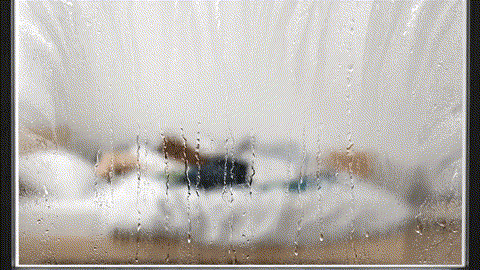Beating the Post-Vacation Slump
Just in time for the end of summer, Episode 10 explores how to optimize coming back from a vacation.
Returning from a vacation can feel like hitting a wall. One moment you're exploring the world's largest science museum in Germany or listening to the waves on a beautiful beach. The next, you're staring down 400 unread emails and 2,000 Slack messages that piled up while you were out.
The "post-vacation blues" is a common experience. Research shows that while only about 12% of us hate our jobs, 87% of us dread coming back from a holiday. And for good reason! Between the pile of catchup work and biological responses to all the rapid changes you’ve been through recently, getting back into your normal routine is a legitimate challenge.
We have some good news, though. With a little preparation before you leave and a smart strategy for your return, you can significantly soften the landing and get back into your groove without losing that vacation glow.
The Science Behind the Post-Vacation Slump
So, why does returning to normal life feel so jarring? It comes down to a cocktail of brain chemistry and psychology.
When you're on vacation, your brain is firing on all cylinders. New experiences trigger a release of dopamine, your brain's "this is cool and new!" chemical. Even less glamorous experiences like navigating a foreign train system produce dopamine as long as they’re new, and especially exciting experiences produce even more of it.
This constant stimulation creates a feeling of excitement and engagement. At the same time, navigating unfamiliar environments puts your body in a low-grade "fight or flight" mode, producing a steady stream of adrenaline. The adrenaline levels are low, so you may not feel anxious, but it’s enough to keep you alert, engaged, and learning.
When you come home, that flood of dopamine and adrenaline suddenly stops. Your body has to recalibrate to its baseline levels, which can feel like a chemical letdown.
On top of that, you’re dealing with a massive context switch. Studies show that even just switching between apps on your computer can create trouble for your brain. So it’s no wonder that switching from a world of exploration or relaxation back to a world of emails and deadlines is a jolt to the system.
The Art of Coming Back
Once you’re back at your desk, three calendar appointments are the key to quickly regaining your productivity momentum. Be proactive and schedule three key things for your first week back:
First, create a dedicated catch-up block. Block off a couple of hours on your calendar explicitly for reading and responding to emails, chats, and reviewing meeting minutes from while you were away. This treats the process of getting up to speed as a significant and important task. It helps anchor your mind and stops you from feeling like catching up will be a never-ending upstream swim. It also sets expectations for your colleagues.
Second, schedule a coworker coffee chat. Schedule a brief, informal 15-30 minute chat with a trusted teammate who you enjoy spending time with. Reading through chats and emails and meeting minutes can tell you what happened, but a person can tell you how it happened. Plus, this early social reconnection helps you recapture the team's spirit and allows for a back-and-forth dialogue to fill in any gaps.
Finally, and most importantly, schedule something to look forward to in your personal calendar. The dopamine dropoff from vacation is one of the biggest factors in the post-vacation slump, so counteract it by planning a personal activity you'll enjoy. Some people go ahead and start planning their next vacation, but it doesn’t have to be something big. Whether it's brunch with friends, a trip to a museum, or even just a calendar block to sit at home and read a book, having something you are excited about on the horizon makes the return to routine much more palatable.
From a more mechanical point of view, 2025 is a fantastic year to be coming back from a vacation because AI tools have finally reached the point where they can really help. Even as recently as a couple years ago, some of the best advice was to sort your Inbox by sender or subject line rather than by date to find important messages.
Today, technology offers a far better solution. Modern AI tools built into platforms like Gmail, Outlook, and chat tools like Slack and Teams are incredibly effective at summarizing what you missed.
When I came back from our most recent trip, I opened Gemini inside my Gmail window and prompted it to "Show me the fifteen most urgent emails that came in since {the day my vacation started}.” It was spot-on, and it caught an email with a next-day deadline that I otherwise probably wouldn’t have caught in time. Copilot in Outlook offers similar functionality, and Slack’s features for summarizing all of the unread messages in a channel were adequate, if not perfect.
If you haven’t tried the AI tools in the last 3-4 months, you’re in for a big, positive surprise. They’ve gotten a lot better recently.
Finally, if you’re traveling across time zones and suffering from jet lag, there are a few ways to minimize the impact. First, try low-dose melatonin (1mg) about an hour before your new target bedtime for 1-3 nights after you arrive in the new time zone. Second, make sure you get sunlight from directly overhead early in the morning the first few days. Finally, eat a large breakfast at your new breakfast time the first day, even if you’re not normally a breakfast person.
Pre-Vacation Strategies
A little bit of preparation before you head out on vacation can make your return to the office feel less like a chaotic scramble.
First, tackle the Zeigarnik effect, the psychological tendency to remember incomplete tasks better than completed ones. On your last day at work, take a few minutes to write down all your "open loops." These are the unfinished projects, lingering questions, and nagging to-do items floating around in your head. Getting them onto a document clears your mind, allowing you to relax more fully on vacation. It also serves as a helpful transition document for any colleagues who might be covering for you.
Next, do your future self a favor and clean your physical and digital workspace. Coming back to a tidy desk is far more calming than returning to a mountain of papers. Similarly, use email management tools to your advantage. If you use a tool like Boomerang, you can schedule important emails to return to your inbox after you’re back. A word of caution: don't have them all arrive on your first morning back! Stagger them over your first few days to create a more manageable flow rather than a digital tidal wave.
Finally, think about your travel schedule. Flying out on a Saturday and back on a Sunday gives you the most travel days while using the least amount of vacation time. But returning mid-week (on a Wednesday or Thursday) can make your catchup period smoother. This gives you a shorter work week to ease back in, catch up, and re-acclimate before the weekend provides another short break.
A Fresh Start for Your Habits
Returning from a vacation has one big productivity upside as well! Coming back from a trip is what researchers call a "temporal landmark"—a point in time that mentally separates the past from the present, like a birthday or New Year's Day. This creates what's known as the "fresh start effect," providing a powerful psychological boost to build new habits or break old ones.
Because your routine has been completely disrupted, it’s a perfect clean slate. If you’ve been meaning to start a new morning routine, read more, or start an exercise routine, the first day back from vacation is a surprisingly effective time to start. The data shows that we are more likely to succeed with goals we initiate after a fresh start.
However, the flip side is also true: vacations can easily break the good habits you’ve already established. Maybe you lost your workout rhythm or forgot about your weekly review. Be mindful that restarting an old habit can sometimes feel even harder than starting a new one. Acknowledge this potential resistance and make a conscious effort to jump back into the positive routines you don't want to lose.
Why It Was All Worth It
When you're buried under a pile of work, sometimes you might wonder if the vacation was even worth the hassle. The answer, from a productivity standpoint, is a resounding yes.
Research from Ernst & Young found a direct link between vacation time and job performance. For every 10 hours of vacation an employee took, their year-end performance reviews were, on average, 8% higher. Taking time off is a powerful antidote to burnout, which is a total productivity killer. It boosts creativity by exposing you to new ideas and environments, and it gives your mind the space it needs to solve complex problems in the background.
The highest-performing employees also tended to be the ones who took the most vacation. That said, we’re not sure which direction the causality runs, so if you’re underperforming, don’t book a long vacation and tell your boss we said so! But as far as we can tell, vacation is not just a benefit. It’s a smart investment for your employer, leading to higher engagement, lower absenteeism, and better work.
Tip of the Week
Before your next trip, set a reminder for yourself a week before you leave. When it goes off, open your calendar for the week you return and schedule three things:
A block of protected time just for catching up on emails and projects.
A brief, casual meeting with a coworker to get the human summary of what you missed.
A personal activity you can look forward to, like a nice dinner out or a weekend outing.
Taking these simple steps will transform your return from a stressful ordeal into a smooth, controlled transition, helping you hold onto that relaxed vacation feeling for just a little bit longer.
To learn more, listen to the full podcast episode.





